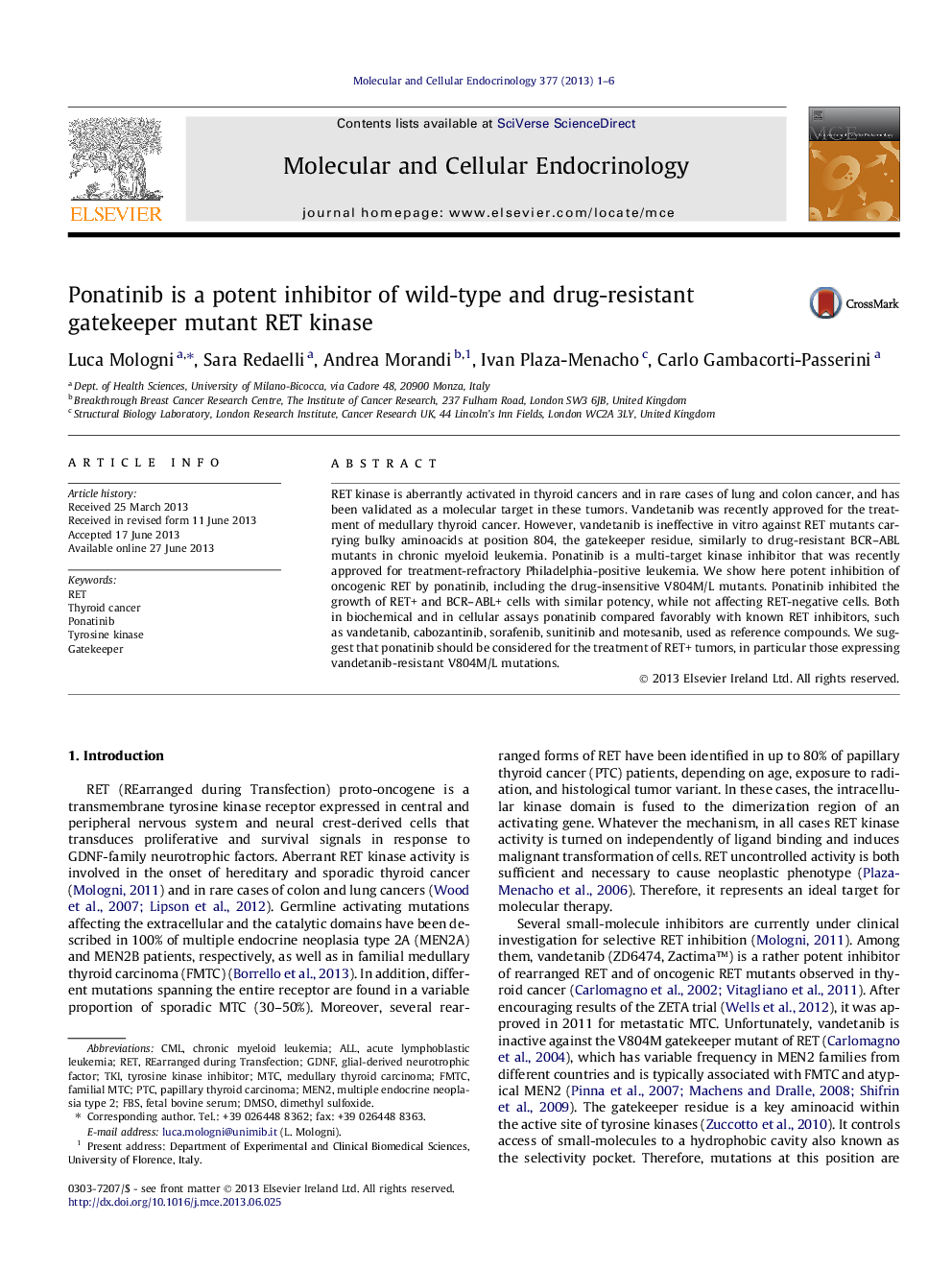| Article ID | Journal | Published Year | Pages | File Type |
|---|---|---|---|---|
| 8477351 | Molecular and Cellular Endocrinology | 2013 | 6 Pages |
Abstract
RET kinase is aberrantly activated in thyroid cancers and in rare cases of lung and colon cancer, and has been validated as a molecular target in these tumors. Vandetanib was recently approved for the treatment of medullary thyroid cancer. However, vandetanib is ineffective in vitro against RET mutants carrying bulky aminoacids at position 804, the gatekeeper residue, similarly to drug-resistant BCR-ABL mutants in chronic myeloid leukemia. Ponatinib is a multi-target kinase inhibitor that was recently approved for treatment-refractory Philadelphia-positive leukemia. We show here potent inhibition of oncogenic RET by ponatinib, including the drug-insensitive V804M/L mutants. Ponatinib inhibited the growth of RET+ and BCR-ABL+ cells with similar potency, while not affecting RET-negative cells. Both in biochemical and in cellular assays ponatinib compared favorably with known RET inhibitors, such as vandetanib, cabozantinib, sorafenib, sunitinib and motesanib, used as reference compounds. We suggest that ponatinib should be considered for the treatment of RET+ tumors, in particular those expressing vandetanib-resistant V804M/L mutations.
Keywords
FBSFMTCponatinibCMLMEN2PTCGDNFMTCTKIDMSOTyrosine kinaseRETRearranged during transfectionGatekeeperDimethyl sulfoxideThyroid cancerfetal bovine serumglial-derived neurotrophic factorAcute lymphoblastic leukemiaChronic myeloid leukemiaTyrosine kinase inhibitorALLmultiple endocrine neoplasia type 2Medullary thyroid carcinomaPapillary thyroid carcinoma
Related Topics
Life Sciences
Biochemistry, Genetics and Molecular Biology
Cell Biology
Authors
Luca Mologni, Sara Redaelli, Andrea Morandi, Ivan Plaza-Menacho, Carlo Gambacorti-Passerini,
